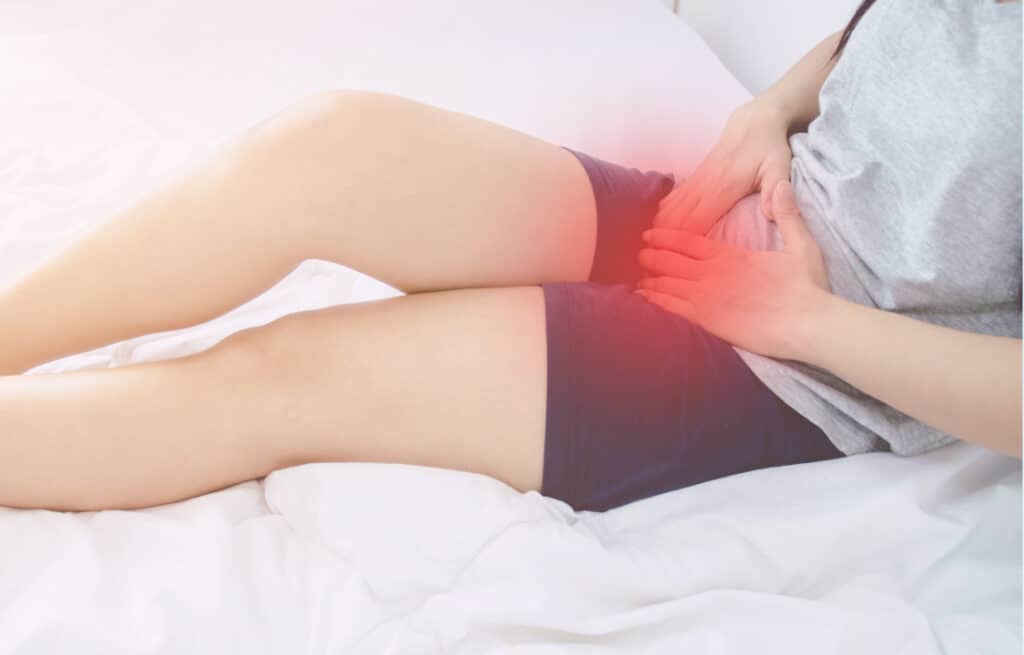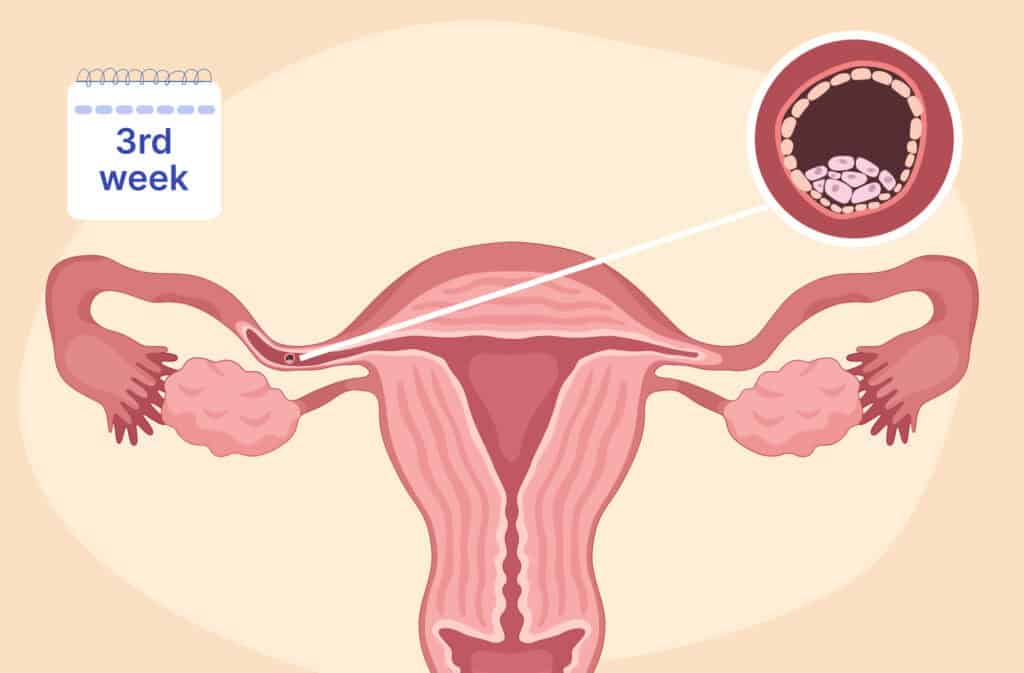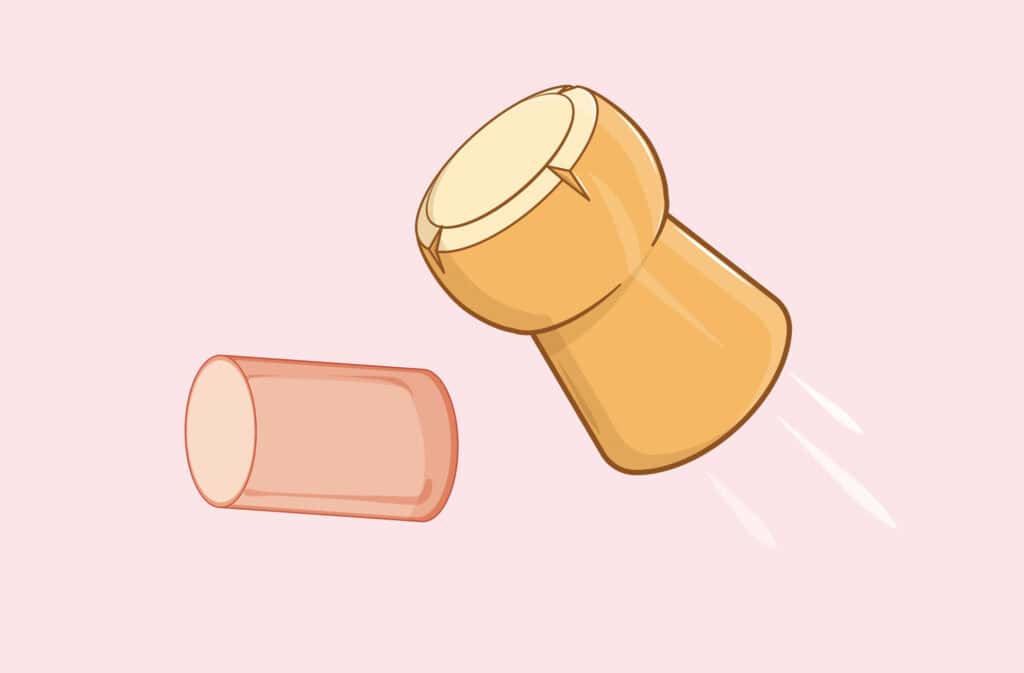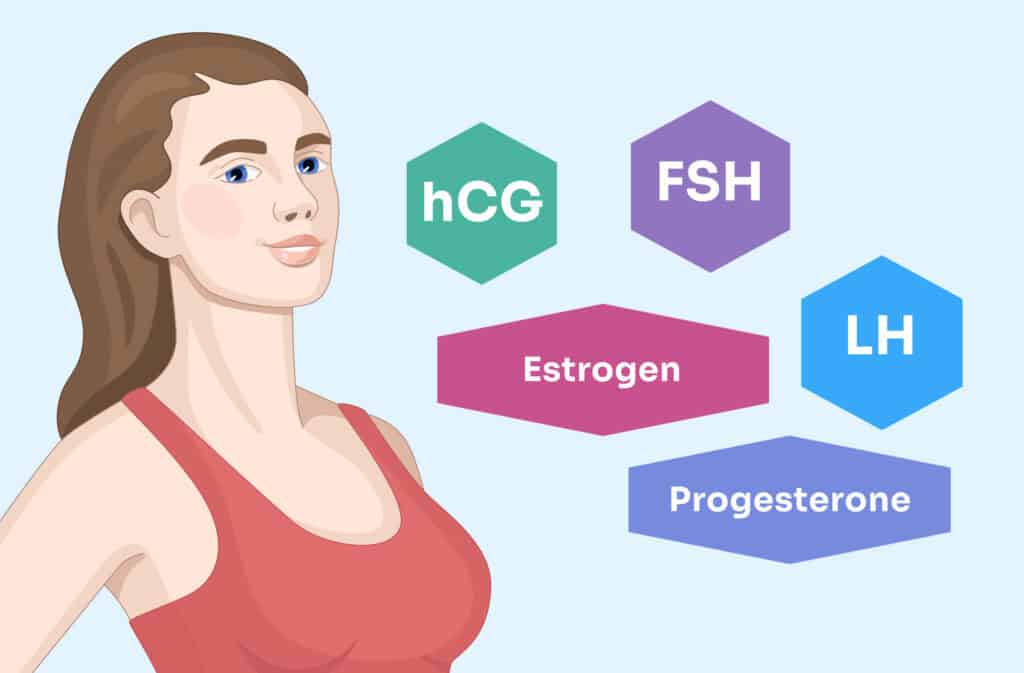Femia > Health Library > Your cycle > Sex > Why does it burn after sex? Causes and solutions for discomfort
Why does it burn after sex? Causes and solutions for discomfort

- Updated Feb 11, 2025
- Published
CRAFTED BY HUMAN
Crafted by human At Femia, we provide accurate and up-to-date information at every stage of your journey, from trying to conceive, pregnancy and postnatal support. All content is created by a real person based on in-depth research and own professional experience. Femia ensures that you will receive expert advice, strict accuracy and a personalized approach from our authors/medical experts. Learn more about our editorial policy.
FACT CHECKED
Fact checked At Femia Health, we maintain the highest standards of editorial excellence in delivering content focused on helping you conceive, guiding you through pregnancy, and supporting you postpartum. Explore our content review principles to learn how we ensure the accuracy and quality of our health and lifestyle tips for every stage of your journey.

Created with Hector Chapa, MD, FACOG, Clinical associate professor, Obstetrics and Gynecology Texas A&M University, College of Medicine in Bryan-College Station, USA
Burning after sex can put you off wanting to do it again, but in most cases is preventable with proper care. There are various possible causes, including friction, vaginal dryness, latex allergies, and infections. Some infections require medical attention, but other causes will ease without treatment. Practicing good hygiene, peeing after sex, and ensuring adequate lubrication can prevent the burning sensation after sex.
Dyspareunia is the official term for pain during or after sex. An uncomfortable burning sensation after sex is a common symptom experienced by most women at some time or another. Generally, it’s down to inadequate lubrication, friction, or having sex for a long time. However, some potential causes require medical attention.
If your vagina burns after sex, it could be due to an infection or allergy. Some sexually transmitted infections (STIs) can also cause a burning sensation after sex, so it’s essential to have regular sexual health checks.
Femia helps millions of women track intimate health symptoms
and find solutions
Why does it burn after sex?
Burning after sex is a relatively common complaint. But, though it may be common, that doesn’t mean it’s normal. Any vaginal burning after sex requires investigation. It could be something as simple as friction or vaginal dryness, or it could be an infection that requires treatment.
Some allergies can cause a burning sensation after sex. UTIs, yeast infections, and STIs will require treatment, so you must schedule an appointment with your OBGYN.
👉Find out more: Understanding and managing cramps after sex: causes and solutions
Why does my vagina burn after sex?
The vagina is a sensitive part of the body, and any irritation can get in the way of your sex life. There are quite a few potential causes of vaginal burning after sex, including:
Lack of lubrication
Having sex without adequate lubrication can leave you with small vaginal tears, which can cause a burning sensation. The vagina produces arousal fluid to lubricate the vagina for sex, but if you aren’t spending enough time on foreplay or aren’t feeling aroused, your vagina may not be adequately lubricated before sex.
The hormonal changes of menopause and breastfeeding can also cause vaginal dryness, as well as some medications. Lubricant can help if applied before intercourse. Just be aware that some lubricants may impact sperm mobility, so it’s vital to choose a sperm-friendly lubricant if you’re trying to conceive. A 2018 study published in BJOG found that lubricant use did not impact the time it takes to conceive.
Friction
Sometimes, burning after sex can just be related to the friction of body parts rubbing together for a prolonged period. If this is the cause, it will likely clear up without medical attention. Shaving stubble can cause friction, irritation, and sore skin after sex.
Some people experience burning after longer sex sessions, so it’s essential to reapply lubrication mid-way through if you have been having sex for longer than usual.
Unirary Tract Infections (UTIs)
One of the most common symptoms of a UTI is a burning sensation when peeing. Other symptoms include needing to pee more frequently, needing to pee urgently, and pain in the abdomen.
Symptoms of UTIs include:
- Burning pain when peeing
- Feeling like you need to pee but then being unable to go
- Frequent urination
- Blood in your pee
Your doctor will prescribe a short course of antibiotics to fight off the infection. Ensure you finish the full course, even if your symptoms start clearing up.
Yeast infections
A fungal yeast infection causes burning, itching, irritation, and swelling of the vulva. Yeast infections are very common, and you may be more at risk of developing one if you are diabetic, pregnant, use hormonal birth control, are on or have recently completed an antibiotic course, or have a weakened immune system.
Symptoms of a yeast infection include:
- A cottage cheese-like vaginal discharge
- Burning and itching
- Swelling and redness of the vulva
- Vaginal pain
- Pain during sex
Your doctor will prescribe antifungal medication to treat a yeast infection. You can also support it with candida cleanse diet. Finish the full course of treatment even if your symptoms improve.
👉Find out more: Vabbing: What it is and how it works
Bacterial vaginosis
You’ve probably heard of bacterial vaginosis (BV), because it gives sufferers an unpleasant, fishy odor. BV requires antibiotic treatment, so see your doctor if you have:
- A foul-smelling fishy odor, particularly after sex
- Gray-tinged white discharge
- Pain during and after sex
- Burning or itching during and after sex
Vulvodynia
Pain around the vaginal opening that lasts over three months with no known cause is known as vulvodynia. Like other chronic pain conditions, vulvodynia can be very difficult for sufferers. It can cause intense pain, prickling, burning, and itching.
The type of burning after sex associated with vulvodynia is called “afterburn,” and it can last anywhere from minutes to days. Try applying a cold compress or soaking the area in salt water for relief.
Sexually Transmitted Infections (STIs)
Some STIs can cause burning during and after sex. Gonorrhea, herpes, and trichomoniasis are STIs that can cause this symptom. You’ll need medicine to treat an STI, so be sure to schedule an appointment with your OBGYN. Some STIs can also be asymptomatic, so it’s essential to have regular tests to ensure good reproductive health.
Allergic reactions
Burning sensations after sex can also be caused by allergic reactions. If you have a latex allergy, latex condoms may cause irritation, swelling, and blistering. You can also be allergic to lubricants, spermicides, and any other products you have come into contact with. If you’ve come into contact with anything new, avoid it for a while and see if the symptoms disappear.
Lichen sclerosus
This chronic inflammatory skin condition affects the genitals. The cause of Lichen sclerosus (LS) is unknown, but experts suspect it is an autoimmune disease. A 2014 study published in the Journal of Women’s Health found that women with LS suffered pain during and after sex, vulvar pain, and burning. You can use a prescription steroid cream to treat the symptoms of this condition.
Why does it burn when I pee after sex?
If it burns when you pee immediately after sex, you might have small vaginal tears from the friction of body parts rubbing together during sex. You may notice a slight burning sensation when your pee passes by these tears. In the absence of vaginal tears, it could simply be the friction from sex has caused skin irritation, and now that skin is feeling more sensitive than usual.
If it continues to burn when you pee for a few days, you might have a UTI. Bacteria can enter the urethra during sex and cause an infection. Other symptoms of infection include abdominal pain, needing to pee more frequently, and feeling the urge to urinate but being unable to. If you think you have a UTI, you’ll need to see your doctor to get a course of antibiotics to fight the infection.
Why does it burn when I have sex?
Most often, burning during sex is due to friction. The repetitive motion of body parts rubbing together can cause irritation. Increasing lubrication or reducing the amount of time you have sex may ease this symptom.
If burning during sex is an ongoing problem, speak to your OBGYN for advice. It could be a sign of infection, vaginal dryness, or an underlying health condition. Sex shouldn’t be painful, so if it is, it’s time to seek help from your OBGYN.
👉Find out more: Does period sex make you more attached? Exploring the emotional and spiritual aspects
Burning during sex: Is it normal?
No, burning during sex isn’t considered normal; however, many women are familiar with this symptom. It may be caused by something as simple as friction, vigor, or having sex for longer than usual. Often, inadequate lubrication is to blame, and increasing the time you spend on foreplay and using lube will solve the problem.
If you’re still experiencing a burning sensation two days later, make an appointment to see your OBGYN. They will take a complete history and run tests to identify the cause of the problem. Often, a simple urine test is enough to determine the reason it burns after sex.
What to do if your vagina burns after sex: Treatment and prevention
Vaginal pain is an unpleasant symptom that can interfere with your daily life. If your vagina burns after sex, you should try:
- A cold compress
- Over-the-counter pain relief
- Taking a salt bath
The following steps may help to reduce discomfort after sex:
Ensure good lubrication
You need to make sure your vagina is adequately lubricated for sex. This might mean increasing the amount of time you spend on foreplay, using a lubricant, or both. If you are having sex for a long time, you might need to add more lubrication during sex to ensure your vagina remains lubricated.
Pee after sex
During sex, bacteria can enter the urethra. Peeing soon after sex can flush the bacteria away and reduce the risk of infection.
Maintain good hygiene
Bad hygiene can put you at risk of UTIs. Ensure anything (fingers and toys, for example) going near or in your vagina is clean to reduce the likelihood of bacteria ending up in your urinary tract.
Avoiding allergens
Allergies can cause irritation after sex. If you’re allergic to latex, switching to latex-free condoms will solve the problem. If you use lubricants or spermicides, and these are the times you notice burning after sex, you may be having a reaction to these products.
Don’t forget, there’s more to sex than penetration
If penetrative sex is causing you problems, you might want to take it off the menu for a while. Focus on other forms of sexual intimacy.
When should you worry about a burning sensation after sex?
While some burning sensations are down to friction, others need further investigation. If the burning after sex continues, you’ll need to speak to your healthcare provider. They may want to run tests to rule out potential causes such as STIs, other infections, and pelvic floor disorder. Your doctor will take a complete history to determine the cause of your burning after sex. Female patients are sometimes embarrassed to discuss things with their doctors, but you shouldn’t be; your doctor is a professional and has seen it all before.
You should contact your doctor for advice if:
- Over-the-counter pain relief doesn’t help with the pain
- The symptoms are there all the time, not just after sex
- You are still having symptoms two days after sex
- You are showing other signs of infection, such as a fever, abdominal pain, and urinary urgency
- Your vagina has an unpleasant, fishy odor
- Your vaginal discharge is grey or green
- You are worried you might have an infection
Femia helps millions of women track intimate health symptoms
and find solutions
Questions from Femia community
Can I have sex if I have a UTI?
If you have a UTI, you should abstain from sex until you complete your treatment. Having sex can irritate your urinary tract and prolong recovery. Your doctor will likely advise you to wait until you have finished your course of antibiotics before engaging in sexual activity. It’s up to you whether you follow that advice or not, but it’s likely the symptoms of the UTI will dampen your sex drive temporarily.
Is it normal for sex to hurt if I'm nearing menopause?
The hormonal changes associated with menopause can cause vaginal dryness. To combat the discomfort of sex with vaginal dryness, you will need to use a lubricant. Hormone therapy may also help reduce your menopause symptoms, so make an appointment to see your OBGYN for advice.
Can my partner’s semen cause a burning sensation?
It is possible, though extremely rare, to be allergic to your partner’s semen. Signs of an allergic reaction include burning, itching, and tingling in the affected area. The skin may also appear red, swollen, and blistered. Allergy symptoms occur soon after contact. If you think this may be the cause, use condoms to prevent semen from coming into contact with your skin.
Could an IUD cause burning after sex?
No, your intrauterine device (IUD) can’t cause burning after sex. However, having an IUD can increase your risk of infection, which could cause a burning sensation after sex. Other symptoms of infection include abdominal pain, needing to pee more, feeling an urge to pee but not being able to, and blood in your urine. If you think you may have an infection, make an appointment to see your doctor as soon as possible.
The bottom line
Burning after sex is, unfortunately, a common symptom experienced by many women. Sometimes, the cause turns out to be something you can treat at home, such as friction or vaginal dryness. However, it can also be caused by STIs, fungal infections, and bacterial infections, which require medical treatment.
There are preventative measures you can take at home to manage most causes, such as peeing after sex, maintaining good hygiene, and avoiding known triggers. However, some causes require medical attention, and it’s essential to seek medical attention sooner rather than later.
If your doctor prescribes antibiotics, anti-fungal medication, or another type of medication, it’s important to finish the course even if your symptoms improve. Not doing so could cause your symptoms to return. If your symptoms are due to an allergy, take steps to avoid coming into contact with that allergen in the future.
References
- Bono, MJ, Leslie SW, and Reygaert WC. “Uncomplicated Urinary Tract Infections.” StatPearls, StatPearls Publishing, 2024, https://www.ncbi.nlm.nih.gov/books/NBK470195/.
- Haefner, Hope K., et al. “The Impact of Vulvar Lichen Sclerosus on Sexual Dysfunction.” Journal of Women’s Health, vol. 23, no. 9, 2014, pp. 765-770. PubMed Central, doi:10.1089/jwh.2014.4805, https://www.ncbi.nlm.nih.gov/pmc/articles/PMC4158972/.
- McInerney, K.A., et al. “Lubricant Use During Intercourse and Time to Pregnancy: A Prospective Cohort Study.” BJOG: An International Journal of Obstetrics and Gynaecology, vol. 125, no. 12, 2018, pp. 1541-1548. PubMed Central, doi:10.1111/1471-0528.15218, https://pubmed.ncbi.nlm.nih.gov/29543376/.
- Tayyeb, M., and V. Gupta. “Dyspareunia.” StatPearls, StatPearls Publishing, 2024, https://www.ncbi.nlm.nih.gov/books/NBK562159/.

At 3 weeks pregnant, your body begins showing early pregnancy signs. Explore 3-week symptoms, fetal growth, and tips for this early stage.

Learn to distinguish between mucus plug and discharge during pregnancy. Understand the appearance, timing, and significance of each. Expert insights from Femia.

Discover everything you need to know about female fertility hormones and tips to balance essential reproductive hormones and support a healthy conception in women.
